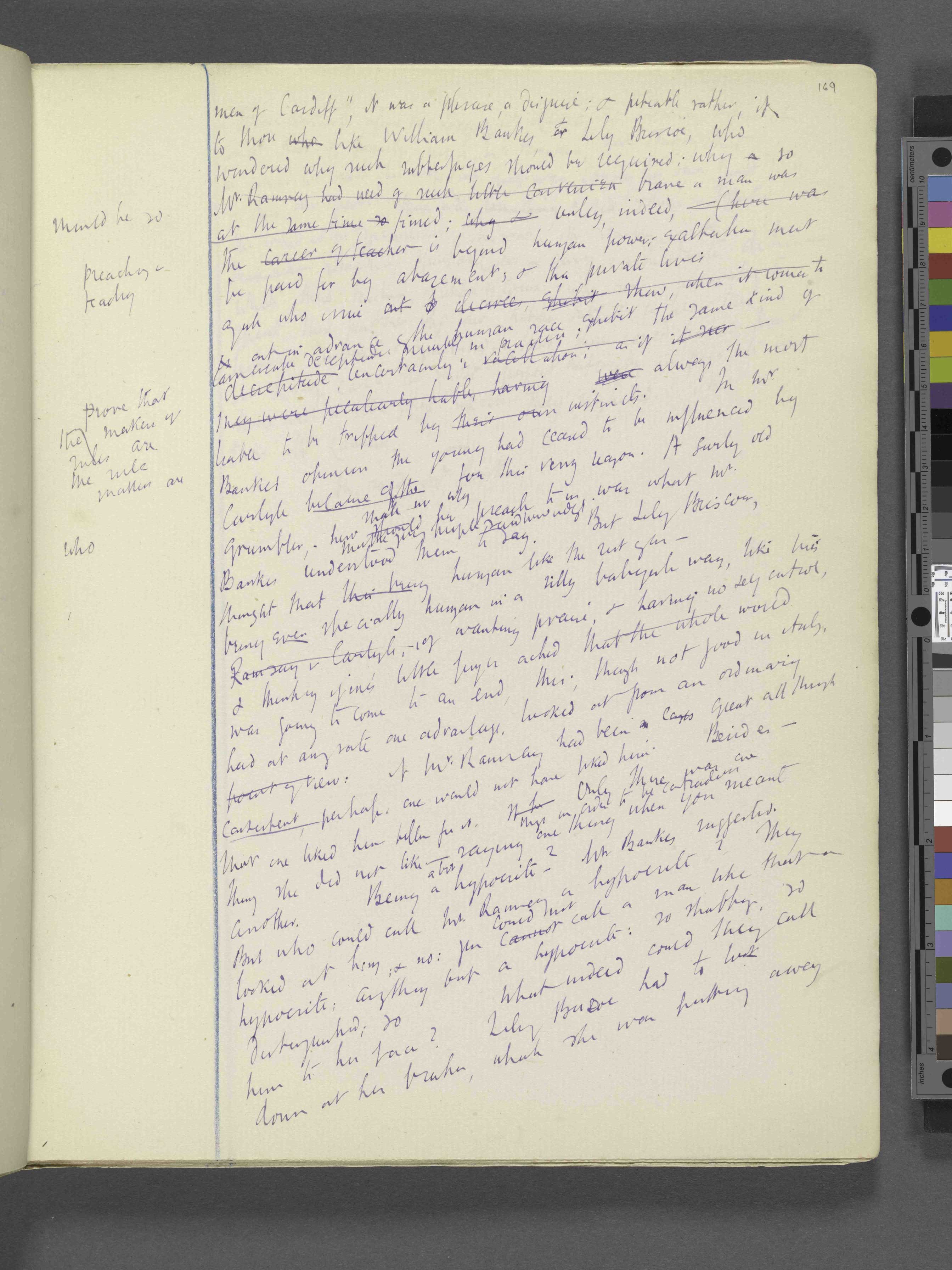
169men of Cardiff", it was a phrase, a disguise; & pitiable rather, ?ifto those who like William Bankes, or Lily Briscoe, who&wondered why such subterfuges should be required; why a soshould be soMr. Ramsay had need of such little convenien brave a man wasat the same time so timid; why ?& unless, indeed, - (here waspreaching &teachingthe career of teacher is beyond human power; exaltation mustbe paid for by abasement; & the private livesof all who arise out of discover, exhibit show, when it comes to[?] out in advance of the human race exhibitlamentable decrepitude, ?miserable in practice;decrepitude, uncertainty; vacillation; as if it soonthe same kind ofprove thatthe makers ofrules arethe rulemakers arewholiable to be trapped by their own instincts.In Mr.they were peculiarly liable, havingwere always the mostBankes' opinion the young had ceased to be influenced byCarlyle because of the for this very reason. A surly oldshall ?no ?onlygrumbler, how should he preach to us was what Mr.that the young people said nowadays.Bankes understood them to say.But Lily Briscoe,thought that this being human like the rest of us -being even specially human in a silly babyish way, like Mr.Ramsay & Carlyle, of wanting praise, & having no self control,& thinking if one's little finger ached that the whole worldwas going to come to an end, this, though not good in itself,had at any rate one advantage, looked at from an ordinarypoint of view: if Mr. Ramsay had been a [?Cart] great all throughconsistent, perhaps one would not have liked him.Besides -that one liked him better for it.No he Only There was onethings in order to be contradictedthing she did not like - sayingone thing when you meantanothera bitBeing a hypocrite? Mr. Bankes suggestedBut who could call Mr. Ramsay a hypocrite? Theycould notlooked at him; & no: youcannot call a man like that ahypocrite; anything buta hyprocrite: so shabby, sodistinguished, soWhat indeed could they callhim to his face?Lily Briscoe had to lookdown at her brushes, which she was putting away









